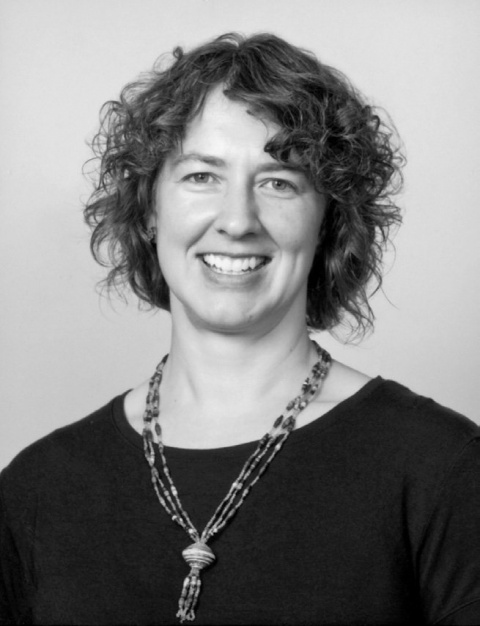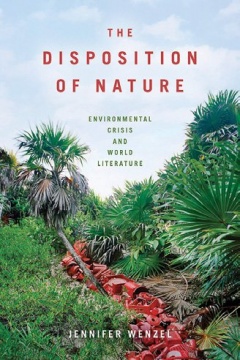Columbia College | Columbia University in the City of New York
Jennifer Wenzel

Wenzel started thinking about the relationship between literature and oil 20 years ago, while teaching a course about West African novels. In three Nigerian texts the commodities of palm oil, petroleum and publishing were interconnected; she was intrigued and dove into further research. Today, “Literature and Oil,” a course that investigates the connections between literary and cultural production and the substance that literally fuels the world, is one of Wenzel’s favorite classes to teach.

Wenzel spent her childhood in Pittsburgh, then her family moved to Texas when she was 10. She was always a voracious reader — Wenzel describes herself as a lifelong English major — but says her undergraduate education at a small liberal arts college in Sherman, Texas, was “canonical.” A few classes in Japanese fiction and Chinese poetry, however, started her thinking about other kinds of literature.
She had the opportunity to travel to India one summer with a friend who was studying Hindi; instead of traveling the country, she taught herself Devanagari, the characters in which Hindi is written. “I turned myself into a student,” she says. Reading paperbacks by Indian writers, she had an epiphany: Postcolonial literature could be her research focus.
Wenzel enrolled at the University of Texas at Austin, and earned a Ph.D. in ethnic and third world literatures in 1998. She taught in Montana and Boston, then spent 11 years at the University of Michigan before joining the College faculty at 2014.
“What’s so amazing about Columbia for me is that it’s an ideal combination of an approximation of a small liberal arts college, where I really thrived and became a scholar, and a world-class research institution,” Wenzel says.
“The English department and MESAAS are the places where [the field of] postcolonial studies was born,” she adds. “Edward Said really transformed literary studies; his student Gauri Viswanathan TC’85, whom I am proud to call a colleague, made an important argument about where literary studies as a discipline originated — with British colonialism in India. And then [University Professor] Gayatri C. Spivak is a world-class scholar of postcolonial theory. So I was thrilled to be joining this vibrant and important intellectual community.”
As part of her dual department appointment, Wenzel teaches one class a year in MESAAS, including “The Novel in Africa,” and “Literature and Cultures of Struggle in South Africa: Generation of Resistance.” She taught the latter online this past spring. “I love that class — I have all sorts of audio/visual material from the decades of the anti-apartheid struggle and the transition to democracy to accompany the literature we read. I wasn’t sure it would translate from Hamilton Hall to Zoom, but I was humbled by the students’ dedication and the energy we were able to create.”
Wenzel says she missed being in the classroom during the pandemic year. “What I love most about teaching is being surprised by my students,” she says. “To be standing in a classroom and just listening to intelligence coalescing in the comments of students. I love the cognitive energy you get from different kinds of brilliance — sometimes conflicting kinds of brilliance. There’s something electric about that to me.”
Wenzel is about to leave Morningside for a year in Paris; in the spring she’ll teach in the Masters in History and Literature program at Reid Hall (part of Columbia Global Centers), but first she’s taking a semester of sabbatical to work on a project she’s calling “The Fossil Fueled Imagination: How and Why to Read for Energy.”
“The news already informs us how oil saturates every aspect of our lives,” Wenzel says, “but I do feel like there are things that I can contribute as a student of the imagination and narrative — like the ways that fossil fuels affect the stories we tell about ourselves and the world we inhabit.”
Issue Contents
Published three times a year by Columbia College for alumni, students, faculty, parents and friends.
Columbia Alumni Center
622 W. 113th St., MC 4530, 6th Fl.
New York, NY 10025
212-851-7852
cct@columbia.edu
Columbia Alumni Center
622 W. 113th St., MC 4530, 4th Fl.
New York, NY 10025
212-851-7488
ccalumni@columbia.edu

